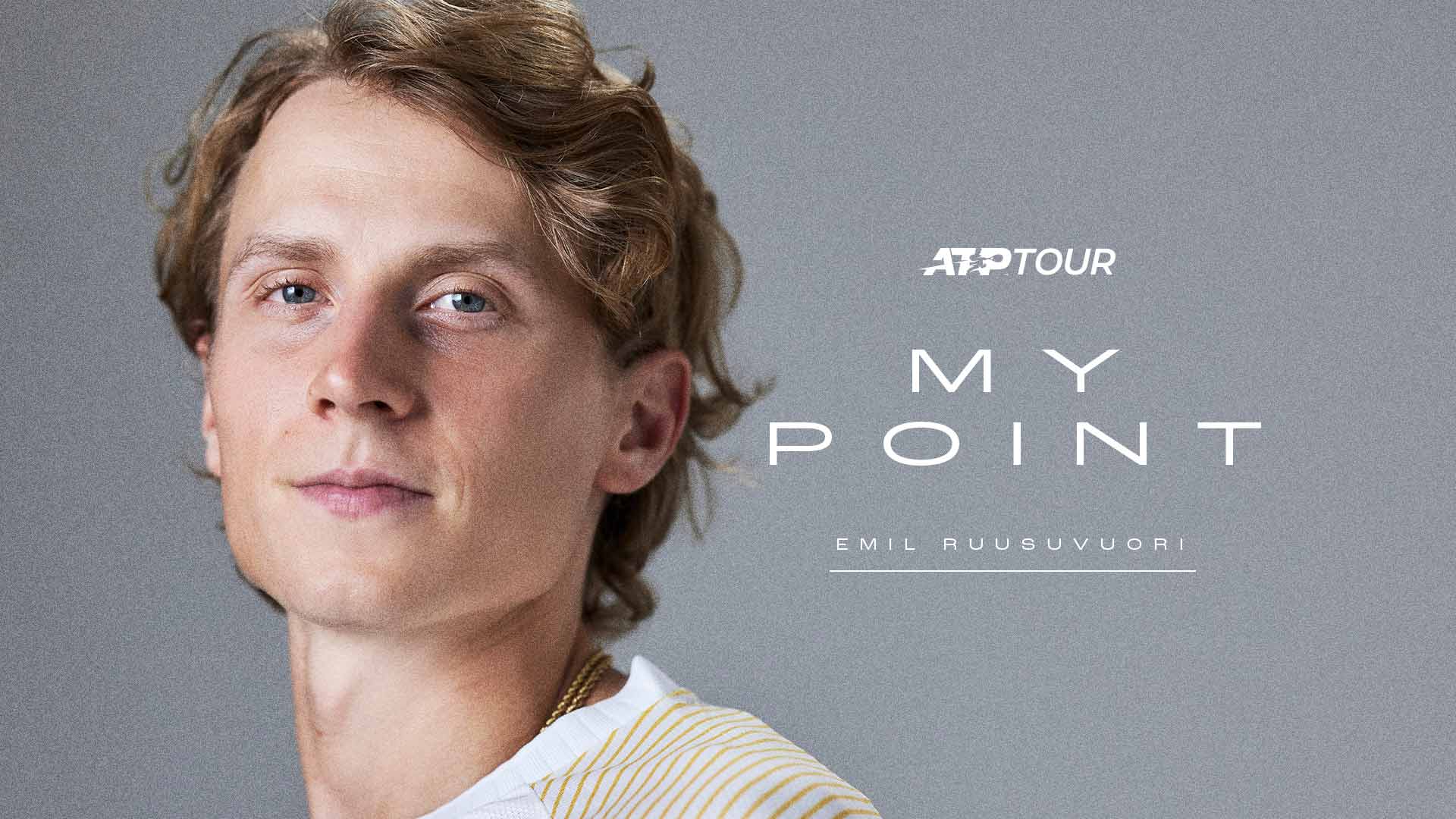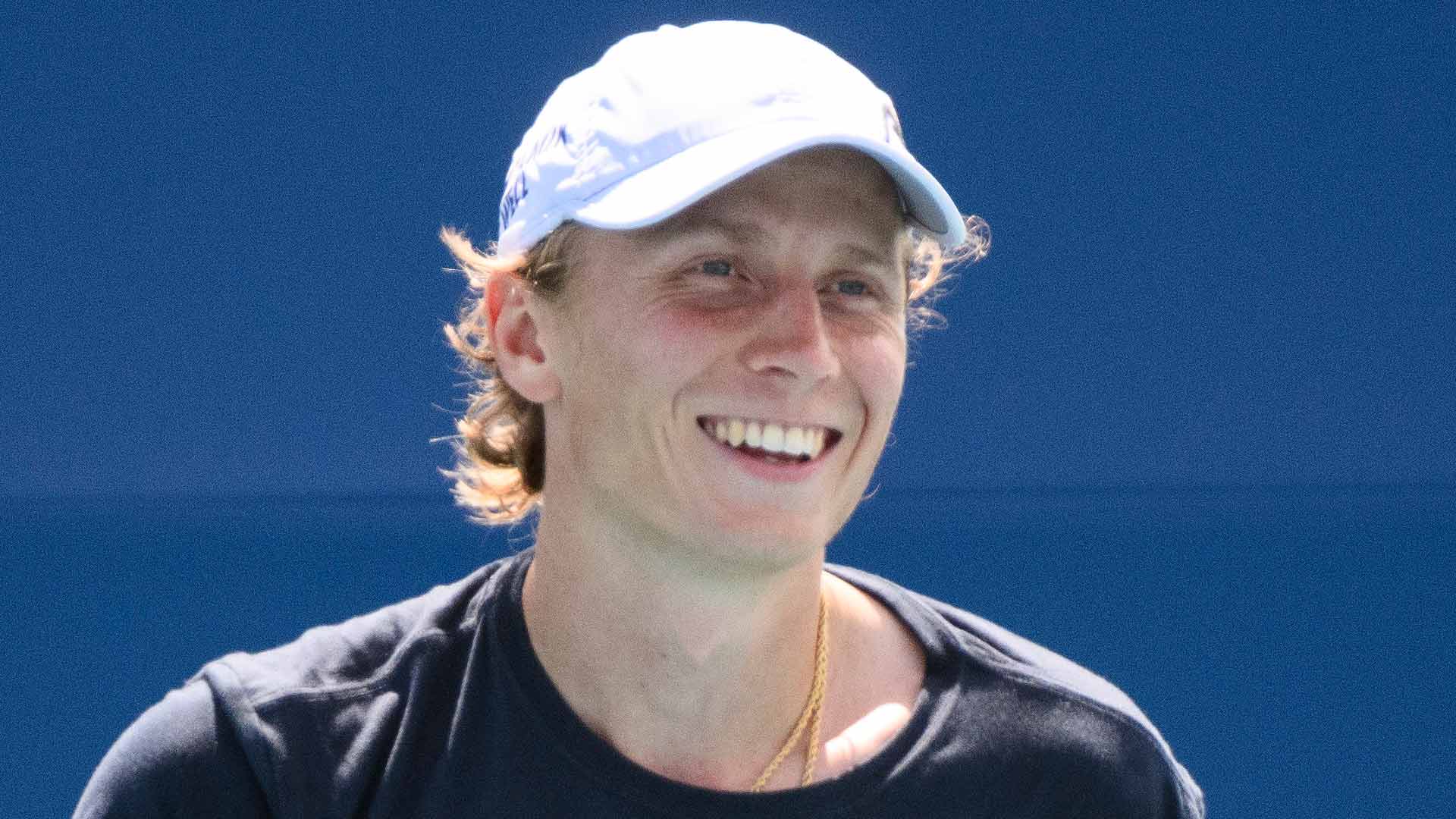

For four and a half months last year, I did not touch a racquet. It was not for a reason you might expect, though.
It was because of my mental health.
When it was bad, I started to forget things. My body was in one place, but my mind was somewhere else. It would go from something as simple as nearly forgetting my racquets to suffering panic attacks.
I knew it was going too far at Roland Garros, because what was happening in my head at tournaments began affecting my life outside the court. I could not sleep well to the point that I started having nightmares. I would wake up sweating with my heart pounding, and I couldn’t breathe. It made me think I was going crazy.
I would wake up in the morning and go to practice, but I was not there. It became a matter of going through the motions. When it came time for my first-round match in Paris, it felt like I was not really on the court. I was not present except for my feet on the clay, so it was no surprise that I lost in straight sets.
I tried to take one or two weeks off to see if that would help before heading to Surbiton for an ATP Challenger Tour event on grass. Instead, I actually had a panic attack on court. I would tell you what it felt like, but I don't really remember the match.
As you can imagine, these things were very scary. I started to have panic attacks off the court, including when I was driving. During Wimbledon, I needed to pull off the road, stop and get out of the car because it sometimes felt like I could pass out. I had no control.
Somehow I made the third round of the tournament, but for half of my match against Giovanni Mpetshi Perricard, I mentally blacked out. I just remember wanting to run off the court.
It was an absurd place to be — I was playing at one of the events I dreamt of competing in as a kid and all I wanted was to be somewhere else or somebody else.
Soon enough, I knew something had to change. Enough was enough.
# # #
The first time I spoke to a professional about my mental health was about 10 years ago, but my struggles became an issue more recently.
Three years ago in Miami was the first time that I experienced a real panic attack. There is such a thin line between feeling normal nerves and something more. It is normal to be nervous for a match — you might start sweating, for example. Everybody has it different and that comes with sports, or really any profession. But this was something different.
One morning in Florida I woke up and felt like somebody was strangling me. It was impossible to breathe. It was like somebody was stepping on my chest.
We got in the car to head to the site and I couldn’t speak. My mind was going crazy with a million thoughts swirling around.
By the time we arrived, I was shaking. At that point, I was barely able to hold back tears long enough to tell my coach that I was not okay. I felt so terrible and did not know what was going on.
Somehow I was able to calm down a bit, went on court to face Maxime Cressy and won the match. Afterwards, I talked about it a little bit with my team, but not that much. I continued moving along.
Once I stepped on the court, I was able to just switch it off and just focus on tennis. A couple of days later I pushed Jannik Sinner to a final-set tie-break. Nobody would have known what I had gone through.

Ruusuvuori celebrates during his match against Sinner. Photo: Peter Staples/ATP Tour.
I had recently made my first ATP Tour final in Pune and the following year I reached a career-high No. 37 in the PIF ATP Rankings. I was doing pretty well despite it all.
Part of the problem is that I learned the way to have success on the tennis court, and then I just followed that as long as it lasted. I was just keeping my mouth shut. Something was wrong, but I just continued doing what I had done for so many years. It was what allowed me to play tennis across the world, so it made sense, right?
Being a professional athlete, you try to survive any issues, forget them and just leave them behind in the hopes they go away. I was somehow able to do it, and that is the cruel part of sports.
After Wimbledon last year, I started with a new team and attempted to play in Washington. When I went to bed, I started to have this feeling that there was someone else in the room. There was a kind of fear, a feeling that someone was there trying to harm me.
I beat Borna Coric in three tough sets, but the tennis was not the most difficult part. On match point against Borna, I thought in my head whether I should just double fault so that I could get out of there.
I traveled to Montreal but withdrew citing the stomach flu, but it was really because of my mind. I decided that was enough. I did not touch a racquet for four and a half months after that and some of those days were the toughest.
For the past 10 years, life was so consistent. There was always the next match, the next tournament. Everything was always moving and suddenly I did not have that anymore. That was a shock, because suddenly it was so boring and there was nothing to do.
I didn’t really feel joy in anything anymore. I wasn’t competing on court, and now I was fighting to get out of bed and honestly even had thoughts about whether I wanted to live, which was very scary. Even worse was how this affected those closest to me and how worried it made them.
I could not go on a tennis court, especially in Finland. I did not want to see people involved in tennis because I could not answer their questions. It was just a difficult situation.
Something that helped was playing quite a bit of padel. I felt like the two hours that I played were the only ones when I didn't think about anything else. I learned how important it was to have some things that interested me.
During the summer I began speaking to my psychologist once a week and told my very close family and friends what I was dealing with, which helped. One of my closest friends went through something similar, which made me realise that I was not alone in this. That gave me perspective.
That is a big reason why I decided to tell my story earlier this month on video in Finnish. It is very interesting to me to have this conversation with different people, trying to bring awareness to getting rid of this notion that it is somehow weak to talk about mental health. Everybody has these moments. It is about how you handle them.
When the video was released, it was like a weight dropped off my shoulders, because I felt like I was always pretending in front of people. It was so difficult. I could not do it anymore. I didn’t feel like I could be honest and that was weighing on me.
I received a lot of very positive messages. Many different people with different jobs commented and you could see that it doesn't matter what you do. Everybody has their own struggles they need to overcome. Some people said it was brave of me that I did it and it helped them, and that meant a lot to me.

Photo: Mike Lawrence/ATP Tour
# # #
A good thing going through this process is that I became okay with the idea that I might not play again. Before that was not even an option. Everything was about my tennis and my career. But still, I always had the idea that I would come back. That wasn't even a question, it was just a matter of time.
It took a while to get my body ready to be able to compete again, and my first tournament back was in February at an ATP Challenger Tour event in Tenerife. The first match was horrendous. It was just so difficult to be on court. The second one was a little bit better, but they have been up and down since.
It is still not always easy. Last month I went to South Korea and had one of my worst panic attacks. I woke up in the morning and my heart was beating way too fast. Before the match, I was in the shower and still felt so weird. My heart was like a car that was revving way too many RPMs. I was sitting and my heartbeat was 100 RPMs, and my normal resting heartbeat is around 37. That was not very good and you start questioning if it is worth it.
The difference is that now I just have the ability to help myself in these moments. When the thoughts start coming and going over the top, I have more tools to calm myself down.
I was able to make my dream come true and become a tennis player. Because I achieved that goal, I had the mindset that I should just do whatever it took to keep moving forward. I didn't really talk about any mental problems because I saw them as a weakness. That's maybe the key word. It was something I felt didn't exist in sports and allowing anyone to see me vulnerable was showing that I was not strong enough.
I think the biggest change in me now is that if I don't want to be on court, I'm not going to force myself. You have to, a little bit, of course. You can't feel good every day in sports — that's not the point. It is a struggle, you need to overcome these challenges. But you just need to feel like there's at least some purpose and passion for it and then you can do it.
If my story helps even one person, then it will be worth it. My main hope is for people to know that you should take care of your mind and look after yourselves. That is the key. If you're not okay, there is no more important thing than helping yourself. Don't keep everything inside of you.
It is okay to be sad. It is okay to have a bad day. But always remember one thing: tough times don’t last forever.
Read More 'My Point' First-Person Essays
- as told to Andrew Eichenholz